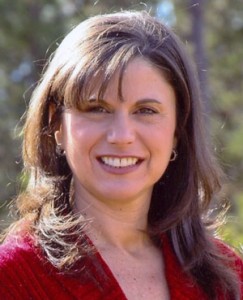 Self-publishing a book can come with pre-conceived notions from readers, other writers and even publishers. People used to think self-publishing a book meant it wasn’t good enough to get picked up by traditional houses. However, the stigma of self-publishing is changing. Success stories have become more and more abundant, and the shock those successes caused even five to 10 years ago is slowly beginning to dissipate.
Self-publishing a book can come with pre-conceived notions from readers, other writers and even publishers. People used to think self-publishing a book meant it wasn’t good enough to get picked up by traditional houses. However, the stigma of self-publishing is changing. Success stories have become more and more abundant, and the shock those successes caused even five to 10 years ago is slowly beginning to dissipate.
Those in the industry have watched the development closely.
Smashwords founder Mark Coker began his site five years ago as an outlet for self-published authors. It started small and has grown into a site where nearly 100,000 books are published each year.

“You know, five years ago when we started Smashwords, self-publishing was seen as the option of last resort,” Coker said, in a recent interview with NPR’s All Things Considered. “It was seen as the option for failed writers. And the publishing industry held that view, and even writers held that view.”
“But that’s changing now,” Coker continued. “Self-publishing is now becoming the option of first choice for many writers. And even traditional publishers now have newfound respect for self-publishing. They’re using the self-publishing bestseller lists to troll for new authors to acquire.”
Coker hits on an important notion in the self-publishing world—are self-published bestseller lists ripe for agents and publishing houses?

In truth, many authors are happy being self-published; many authors went that route after years of being published the traditional way.
While the bestseller lists remain a great resource for agents, literary agent Rachelle Gardner, in a recent post on her blog, argues that self-published books are not the new slush pile.
For one, not everyone wants to come off that list, but it’s just one place she seemingly searches when looking for new talent.
“My conclusion is that self-published books are just one source of good authors and books, but they’re not ‘the new slush pile,’” Gardner wrote. “Over time, things may move in that direction, but I would never want that to be the only place we look for new authors to publish.”

Penny C. Sansevieri recently tackled the issue on The Huffington Post. She’s been part of the business for years and witnessed the transformation. Self-publishing a book doesn’t have to mean the end of a budding career.
In fact, it could be the start of something great.
“Well, a lesson most of us (hopefully) learned when we were young: don’t judge,” Sansevieri wrote on HuffPo. “Though then again, many of us do. I’m guilty of this as well. If I see a self-published book with a shoddy cover, I probably won’t bother to open it. And though a lot of people like to tout the secrets of success in self-publishing, there really are no secrets. And in the end, it comes down to just two things:
“Put out a good product, then do a lot of pretty obvious stuff to promote it.”
































Nice balanced article. For readers, if you don’t advertise yourself as a self published author, they don’t care. Few people buy a book based on it’s imprint.
Advertising yourself as a self published author = bad cover and bad marketing copy.
Eek! I guess that bad apostrophes and missing hyphens also = advertising.
I second that. Readers don’t care. Maybe they never did. It’s editors who care the most, because you’re bypassing them after centuries in which they got used to being indispensable. Other writers, too, will be jealous because they went to the trouble of going through a publisher — putting themselves at the publisher’s mercy — while you did just fine without. And both categories have their share of snobs.
“Put out a good product, then do a lot of pretty obvious stuff to promote it.”
Well said and I agreed. Totally.
I’ve been a developmental trade book editor for a long time. Over the years, I’ve had several trade books published by traditional houses, so I do have connections in the trade industry. Making the jump from trade to fiction is extraordinarily difficult, time-consuming and expensive. Finding a fiction agent with a heart and a brain is like gnawing off a foot–very slowly. Out of frustration, I went the indie route with four interconnected novels and one trade title (ebooks and paperbacks). They are neither junk nor slush. But, and it’s a big one, my experience told me that hiring a freelance fiction editor was mandatory, so I did. Same reason the covers were professionally designed. Marketing and reviews are the author’s responsibility. It’s been difficult, but I’m winning.
It is still true, however, that the open-season nature and ease of indie publishing still mean there’s an avalanche of questionable stuff out there that has never been edited, ever, by anybody. Until this changes, the perception that indie authors are failed writers will persist.
J